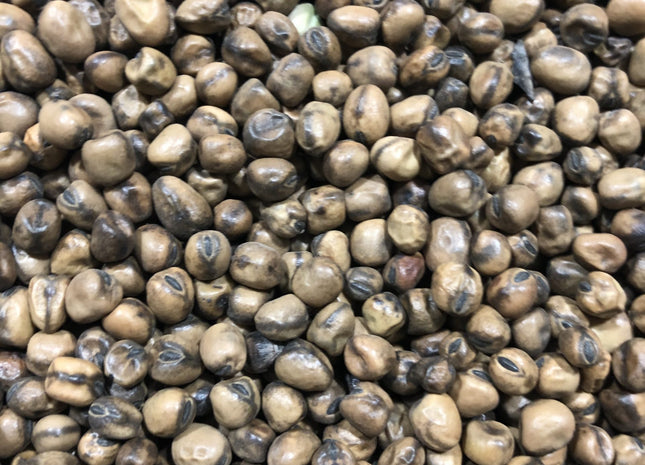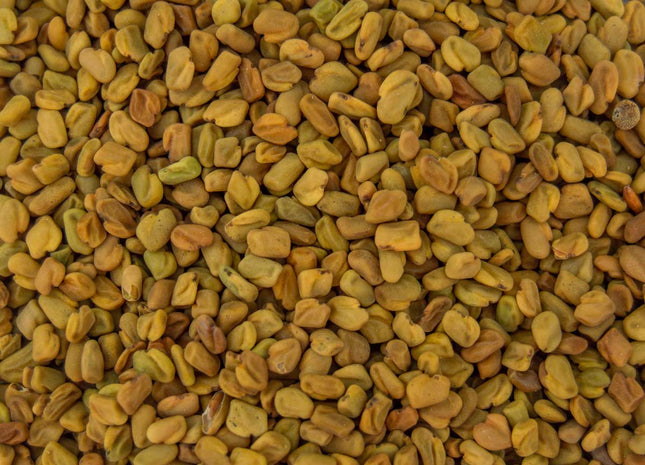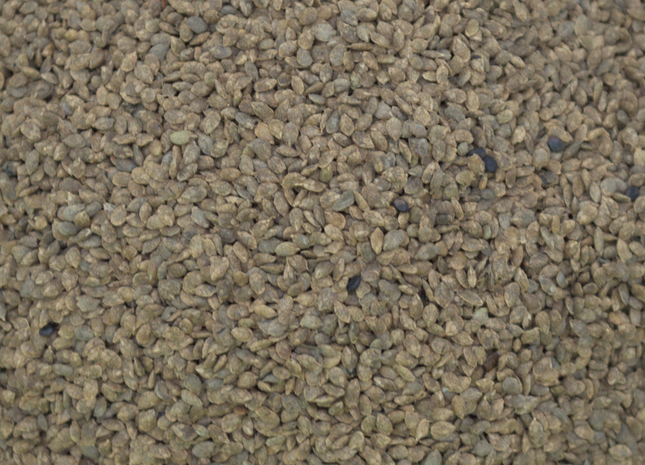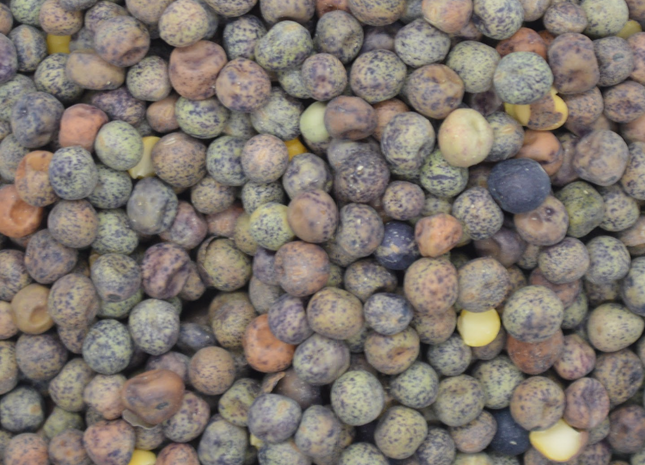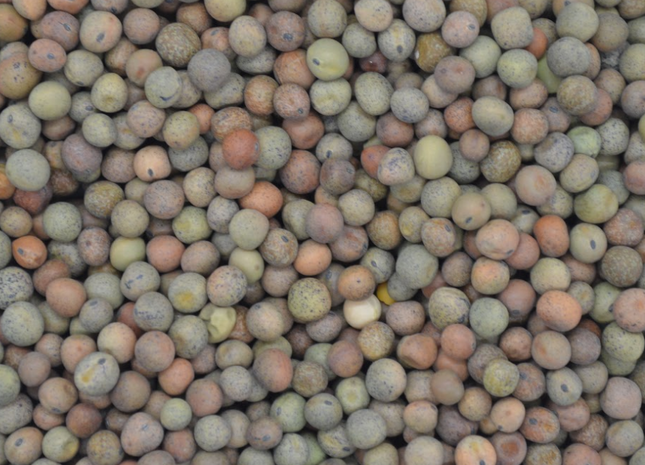Products

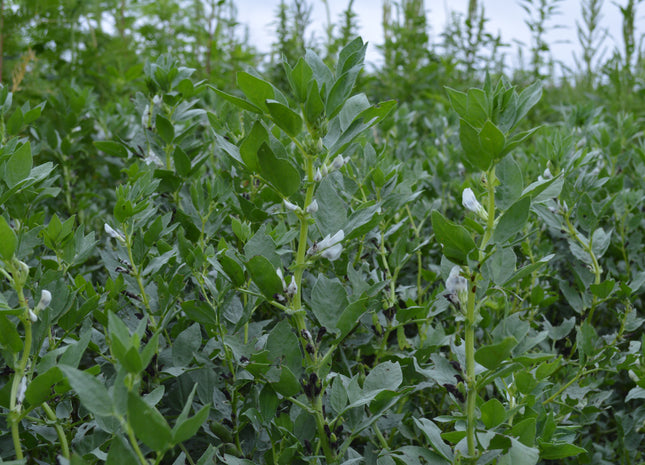
Faba Bean
Faba beans are one of the oldest plants under cultivation, having been grown in ancient Greece and Rome. Unlike other beans, they prefer cool weather, allowing them to be planted — and harvested — much earlier. Faba beans have a distinct flavor and creamy texture that make them a fine ingredient for a wide variety of dishes. This legume is a natural, organic fertilizer (called a green manure) that fixes nitrogen in the soil for other plants to use. By planting faba beans in your garden, food plot or field, you can improve soil fertility at the same time without needing to add other fertilizers and amendments.
from $0.90 per lb

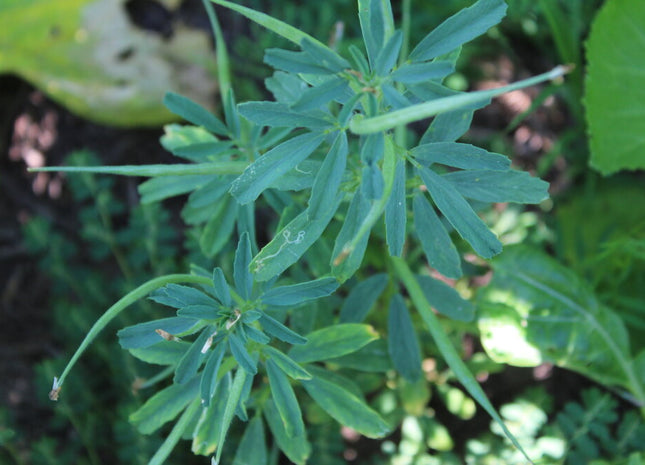
Fenugreek - OMRI Inoculated
Fenugreek is not commonly known in the US, but we think it should be. This legume is commonly used in pastures and haying situations. It is known for its livestock health benefits including promoting reproductive and digestive health. In fact some of the top soil scientists in the world recommend adding fenugreek to every livestock diet. This plant looks similar to clover with flowers resembling common peas. As a warm season plant, fenugreek loves sunlight and heat and makes a great addition to any warm season mix for its grazing and N-fixing characteristics. *Please note this is NOT food grade seed and is NOT recommended for human consumption.
from $1.70 per lb

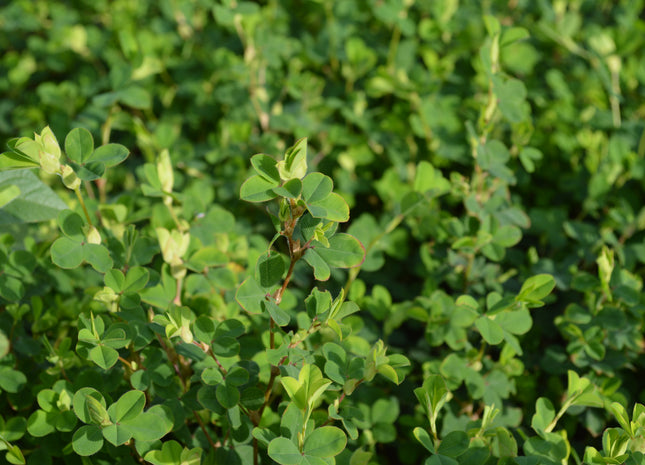
Korean Lespedeza
Korean lespedeza is a low growing warm season annual legume known for it's ability to tolerate acidic and low fertility soil. They do most of their growing in the months of July and August. Though not high yielding, Korean lespedeza is very highly palatable and does not cause bloat. Annual lespedeza is a small seeded annual legume. Korean lespedeza can be frost seeded or drilled into pastures in midwinter or early spring, emerging in summer, or similarly seeded into a growing wheat crop for a hay or pasture crop after wheat harvest.
from $2.05 per lb
- Out of Stock

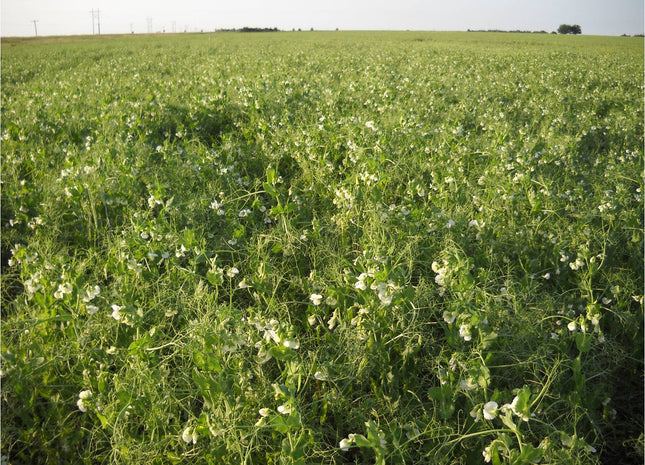
Organic 4010 Spring Forage Pea
Note: This products is certified organic. Spring peas are one of the fastest growing spring legumes. Planted in spring after the harshest winter cold has passed, spring peas will tolerate some light freezing. Peas are commonly planted with oats as a high quality spring feed either for hay or grazing or even a green manure.
from $0.72 per lb
- Out of Stock

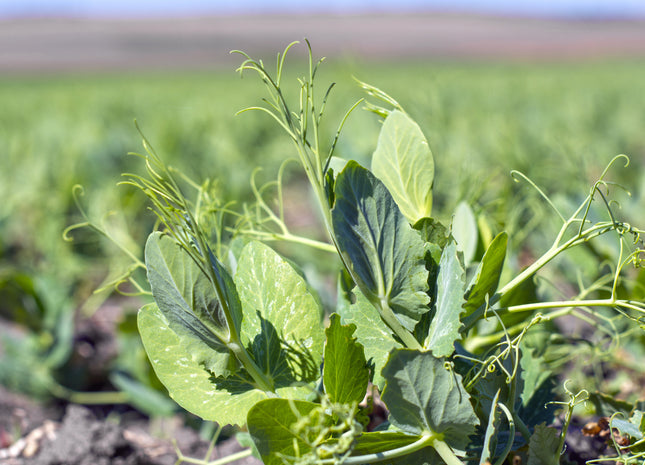
Organic Austrian Winter Peas
Note: This product is certified organic. Austrian winter peas are good companions to fall mixes, especially when combined with hairy vetch. If planted in early fall, there can be good growth for fall grazing as a protein source in the mix and they will grow much later into the fall than spring peas. In order to maximize winter survival chances, winter peas need to be planted relatively late (about the middle of wheat planting season) and deep, up to 3 inches. These conditions will help protect the growing point of the pea and assists in survival in colder climates.
from $1.00 per lb


Spring Forage Pea (4010 Non-GMO)
Spring peas are one of the fastest growing spring legumes. Planted in spring after the harshest winter cold has passed, spring peas will tolerate some light freezing. Peas are commonly planted with oats as a high quality spring feed either for hay or grazing or even a green manure.
from $0.55 per lb


Winter Peas (Austrian)
Austrian winter peas are good companions to fall mixes, especially when combined with hairy vetch. If planted in early fall, there can be good growth for fall grazing as a protein source in the mix and they will grow much later into the fall than spring peas. In order to maximize winter survival chances, winter peas need to be planted relatively late (about the middle of wheat planting season) and deep, up to 3 inches. These conditions will help protect the growing point of the pea and assists in survival in colder climates.
from $0.80 per lb

